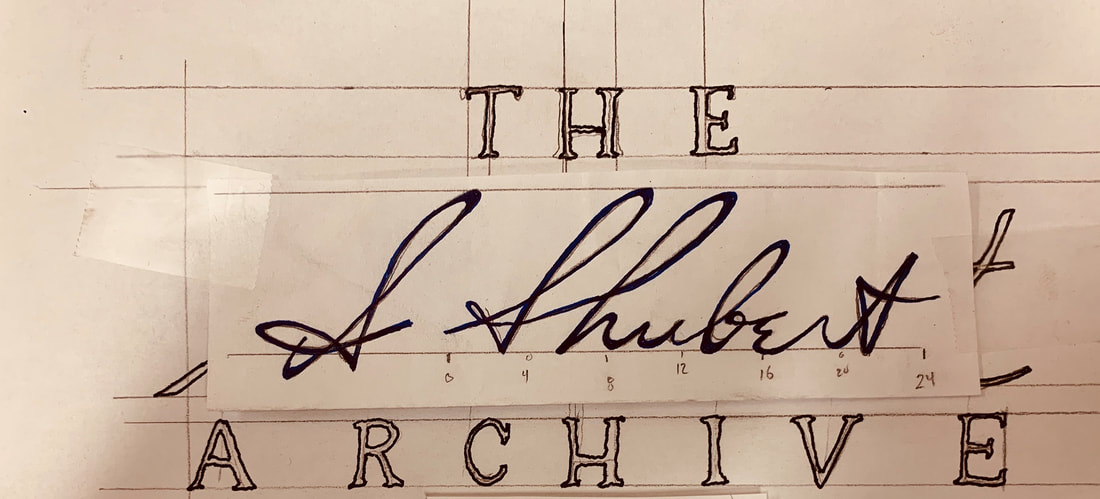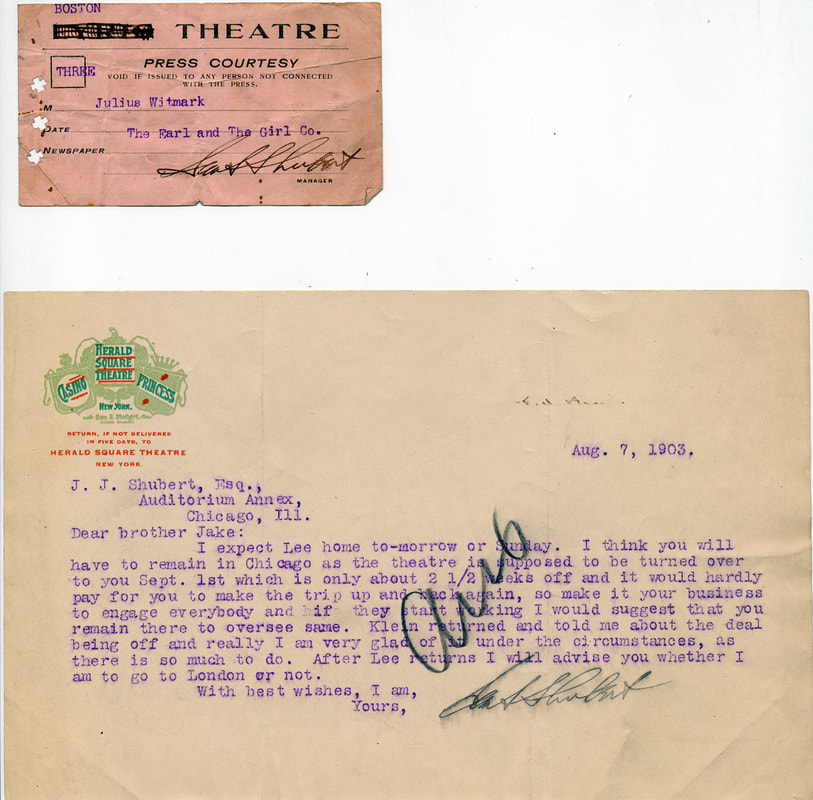
Established in 1976, The Shubert Archive is a project of The Shubert Foundation. Its mission is to preserve and make available to researchers the business and artistic records of the Shubert Brothers and The Shubert Organization. The idea for starting a Shubert Archive began with Lynn Seidler, then Executive Director of The Shubert Foundation, who realized that the materials long stored in various Shubert locations had historical significance. Her insight, along with the support of Gerald Schoenfeld, Bernard Jacobs and The Shubert Foundation Board led to the formal establishment of The Shubert Archive. Brooks McNamara, Professor in the department of Performance Studies at New York University, was appointed Director of The Shubert Archive. Brigitte Kueppers became the archivist, and for 11 years, oversaw Shubert interns—graduate students from New York University—who processed and cataloged the wealth of Shubert materials that were gradually unearthed. In 1986, The Shubert Archive opened its doors to researchers.
The Shubert Archive documents every aspect of the Shubert company history. The earliest records date from the 1890s when the brothers leased their first theatre, the Bastable, in Syracuse, NY; the latest documents cover contemporary productions and events. A large part of the collection focuses heavily on the first four decades of the twentieth century when Sam. Lee, and J.J. were at the height of their power and influence as producers and theatre owners. The collection comprises more than 6,900 linear feet of business, financial and legal records, and correspondence. The Shuberts’ producing activities are represented by scripts, musical scores, set and costume designs, photographs, and recordings. In addition, the Archive houses thousands of sheets of vintage architectural plans for theatres and other real estate in New York City and across the U.S. Also part of the collection are papers, photographs, paintings and memorabilia related to the Shubert brothers and their families.
In addition to theatrical materials, researchers will find much information related to business management, union and labor relations, and trends in popular culture. The Archive also has a significant collection of the business papers of Klaw and Erlanger (The Theatrical Syndicate), the Shuberts’ rivals. Among The Shubert Organization’s papers that are housed here, are a series relating to the city landmarking of the Broadway playhouses, and several series relating to the revitalization of Times Square. The Archive is the repository of significant collections of papers from contemporary general managers, including Albert Poland, Marvin Krauss, and Gatchell and Neufeld.
The Shubert Archive documents every aspect of the Shubert company history. The earliest records date from the 1890s when the brothers leased their first theatre, the Bastable, in Syracuse, NY; the latest documents cover contemporary productions and events. A large part of the collection focuses heavily on the first four decades of the twentieth century when Sam. Lee, and J.J. were at the height of their power and influence as producers and theatre owners. The collection comprises more than 6,900 linear feet of business, financial and legal records, and correspondence. The Shuberts’ producing activities are represented by scripts, musical scores, set and costume designs, photographs, and recordings. In addition, the Archive houses thousands of sheets of vintage architectural plans for theatres and other real estate in New York City and across the U.S. Also part of the collection are papers, photographs, paintings and memorabilia related to the Shubert brothers and their families.
In addition to theatrical materials, researchers will find much information related to business management, union and labor relations, and trends in popular culture. The Archive also has a significant collection of the business papers of Klaw and Erlanger (The Theatrical Syndicate), the Shuberts’ rivals. Among The Shubert Organization’s papers that are housed here, are a series relating to the city landmarking of the Broadway playhouses, and several series relating to the revitalization of Times Square. The Archive is the repository of significant collections of papers from contemporary general managers, including Albert Poland, Marvin Krauss, and Gatchell and Neufeld.
|
|
The Archive Staff
Mark E. Swartz, Ph.D., Director
Sylvia Wang, Archivist Arielle Dorlester, Associate Archivist |



